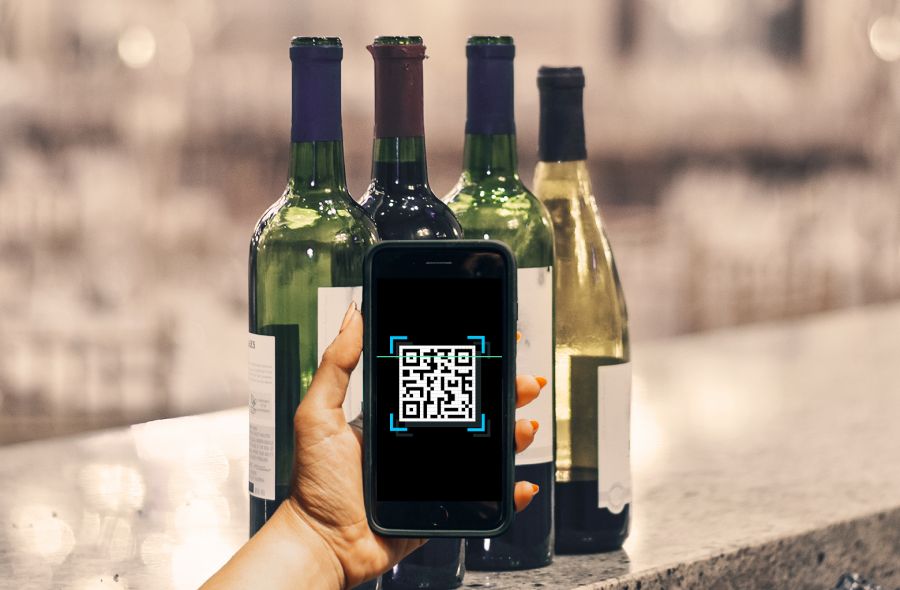The wine industry, valued at over $100 billion globally, faces unprecedented challenges in maintaining authenticity and consumer trust. Counterfeit wines plague the market, with estimates suggesting that 20-50% of premium wines could be fake, costing the industry approximately $3 billion annually. Traditional traceability methods have proven inadequate in addressing sophisticated fraud schemes that threaten both producers and consumers. Enter blockchain technology—a revolutionary solution that promises to transform how wine authenticity is verified and supply chains are managed.
This immutable digital ledger technology is creating an unprecedented level of transparency, allowing every bottle’s journey from vineyard to glass to be permanently recorded and verified. As the wine industry embraces digital transformation, blockchain emerges as the definitive answer to combating counterfeiting while enhancing quality control and consumer confidence.
The Counterfeiting Crisis in Wine
Wine fraud represents one of the most significant challenges facing the industry today. The proliferation of counterfeit wines threatens consumer trust and brand integrity, with fraudsters capitalizing on high-value wines by creating fake labels and misrepresenting origins. The Chinese market exemplifies this problem, where aphorisms like “the Chinese gulp down more ‘French’ wines than France makes” highlight the scale of counterfeiting. This crisis extends beyond financial losses, fundamentally undermining the reputation of legitimate producers and eroding consumer confidence in premium wine markets.
How Blockchain Technology Works in Wine Authentication
Blockchain provides a decentralized, immutable ledger that records every transaction transparently and securely. In wine applications, each bottle receives a unique digital identity through smart tags, QR codes, or NFC-enabled closures. These technologies create an unalterable record of the wine’s journey, from grape cultivation through fermentation, bottling, distribution, and final sale. The dVIN protocol exemplifies this approach, using VIN tokens that function like air miles for wine, rewarding consumers at the point of consumption while creating a comprehensive data layer.
Real-World Implementation Success Stories

Several pioneering companies have successfully implemented blockchain solutions in wine traceability. VeChain’s partnership with Shanghai retailers demonstrates practical application, allowing consumers to scan QR codes and access detailed information, including winery details, grape variety, customs declarations, and storage conditions. The Georgian Wine Traceability Program, launched by the Cardano Foundation, showcases how blockchain preserves winemaking heritage while enabling global market expansion. Similarly, Everledger’s anti-tamper bottle closures combine NFC technology with blockchain to create unique digital identities for each bottle, using rolling code technology that acts as a one-time password.
Benefits Beyond Authentication
Blockchain technology offers advantages extending far beyond fraud prevention. The technology dramatically reduces customer acquisition costs for winemakers while enabling real-time consumption data collection. Smart contracts facilitate global trade efficiency by automating payments and reducing transaction risks. Additionally, blockchain integration with IoT sensors creates comprehensive monitoring systems that track storage conditions, temperature fluctuations, and handling practices throughout the supply chain. This data-driven approach ensures quality control while providing consumers with unprecedented transparency about their wine’s production and journey.
Future Implications and Market Transformation
The wine industry stands at the threshold of a technological revolution. Future developments include DeFi applications in wine, such as tokenized collateral and lending options, transforming wine into a more liquid investment asset. The technology promises to make Web3 accessible through integrations rather than complete overhauls of traditional wine businesses. As blockchain adoption accelerates, the industry anticipates reduced fraud, enhanced consumer trust, improved supply chain efficiency, and new opportunities for wine investment and trading.


